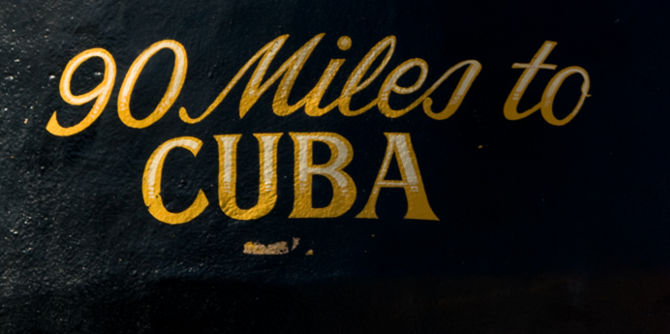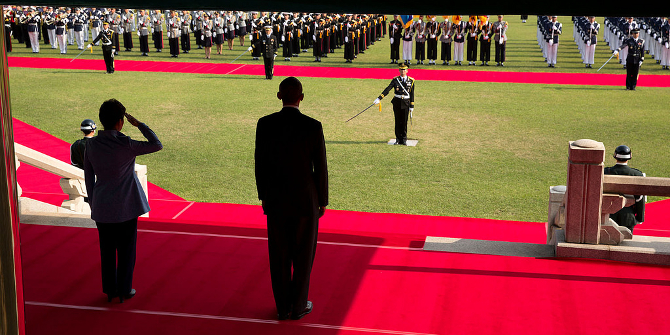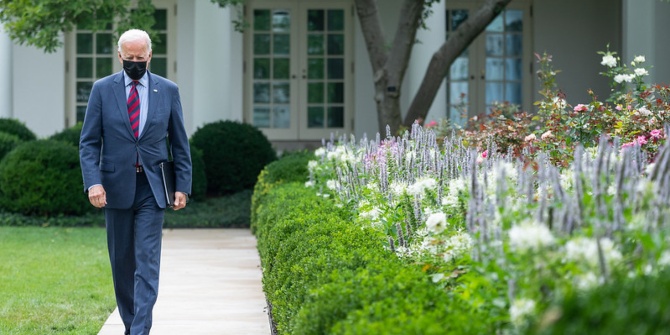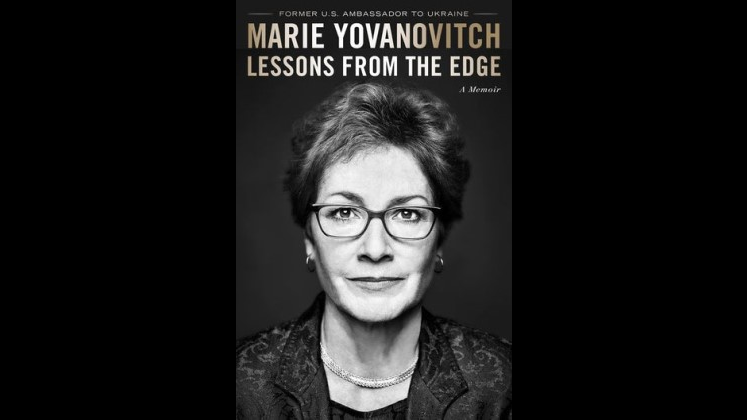 This month saw the first steps towards the normalization of relations between the US and Cuba after a year and a half of secret negotiations. But how has the embargo persisted for so long, and were any opportunities to speed its end missed? David W. Wise writes that the embargo has remained in place due to the influence of interest groups who benefited from it, and that but for the Lewinsky scandal, a papal visit to Cuba in 1998 could have led to a much earlier thaw in relations.
This month saw the first steps towards the normalization of relations between the US and Cuba after a year and a half of secret negotiations. But how has the embargo persisted for so long, and were any opportunities to speed its end missed? David W. Wise writes that the embargo has remained in place due to the influence of interest groups who benefited from it, and that but for the Lewinsky scandal, a papal visit to Cuba in 1998 could have led to a much earlier thaw in relations.
Continuing his unexpected post midterm election activism, President Obama surprised almost everyone when he announced last week the fruits of a year and a half of secret negotiations to normalize relations with Cuba. Although it may take some time for the embargo and the Helms-Burton trade restrictions to be removed, the President acknowledged what had been obvious to almost all objective observers, namely that the attempt to isolate Cuba had failed to achieve any of it objectives. In looking back at the announcement two temporal questions come to mind: First, why did a policy that had been almost a complete failure for 53 years take so long to reverse and, second, whether there had been any missed opportunities along the way?
The answer to the first question – why so long – can be explained in terms of domestic US politics. In this, its Cuban policy is not unique. In the late 1940s and 1950s the so-called “China lobby” was the tail that wagged the US Asian policy dog, the vestiges of which are still present in US security guarantees and arms sales to Taiwan. AIPAC and the American Armenian lobby are other examples of domestic groups that have a strong impact on Congress and foreign policy.
The role of Cuba in the context of domestic politics goes back to at least the Ostend Manifesto in 1854 when the southern states sought to bring Cuba into the Union as a slave holding state. Of course, the current policy put in place in 1961 was done for entirely different reasons within the context of the Cold War and has survived 23 years beyond the collapse of the Soviet Union. Not only has the US policy towards Cuba been a sore spot with our many neighbors to the South and been ostracized by 23 annual votes by the United Nations General Assembly but it has failed to garner support from even our closest allies the United Kingdom and Canada.

“The Cold War’s last open wound,” in the words of the LA Times, was kept open by certain interest groups and local political elites in the Cuban refugee communities primarily around Miami and in New Jersey who eschewed any signs of conciliation as betrayal. Although one can understand the genuine enmity that these groups have towards the Castro regime it is also true that keeping the faith with the opposition become a source of legitimacy for certain political leaders in terms of the politics of Florida and New Jersey, a manifestation of which was on display in Senator Marco Rubio’s opposition to the president’s announcement.
In addition, there sprang up over the past three or four decades what the New York Observer described as “a self-perpetuating embargo industry,” which is “thinly disguised political patronage” begun during the Reagan administration that channeled millions of dollars to support organizations and programs that depended on severed diplomatic relations for their existence.
The question of missed opportunities, like all historical “what ifs,” is far more tantalizing. In addressing that question a starting point begins with the leading role played in the behind the scenes negotiations by Pope Francis on whose birthday the historic announcement was made. In the words of one unnamed White House official quoted in the New York Times, “You just cannot overstate the importance of this pope.” The pontiff, who is from Argentina and had himself lived through a dictatorship, had visited Cuba when he was a cardinal and is good friends with the Cardinal Jaime Ortega, the Archbishop of Havana.
Francis, of course, built on earlier diplomatic efforts by Pope John Paul II who had worked to reconcile the west with Cuba, a country with which the Vatican had maintained unbroken diplomatic relations for 79 years (the United States has been able to maintain unbroken relations with Cuba’s former sponsor the Soviet Union and its successor the Russian Federation for 81), the majority of which encompassed the Castro regime. John Paul had begun his efforts as pope by naming Ortega Archbishop of Havana in 1981, in a 1984 visit to Puerto Rico and in receiving Fidel Castro at the Vatican in 1996.
It is here the game of historical speculation comes into play. One of the outcomes of that meeting at the Vatican in 1996 was an invitation to John Paul to visit Cuba in 1998. There was great anticipation that this visit would produce much more than photo ops. After all, there is widespread consensus that a 1979 visit by the same pope to his native Poland unleashed forces that helped bring about the Solidarity movement in Gdansk that set in motion events that resulted in the collapse of the eastern bloc and ultimately of the Soviet Union itself.
When the pope descended from his plane on January 22, 1998 there was a very real sense that lightening could strike twice and that Castro might have allowed forces to be unleashed that, like his Polish comrades, he could not control. Unfortunately, just hours after the arrival of the pope the news of the Monica Lewinsky scandal broke. News anchors and crews were recalled to the United States and various news specials on the pope’s historic visit were bumped in order to cover the scandal. The administration, rather than taking advantage of the momentous events taking place ninety miles offshore, began to circle the wagons to defend the president from partisan domestic political attacks that ultimately led to impeachment. No one can be certain whether the conditions were ripe for a thawing in US Cuban relations in Clinton’s final two years as is now taking place in the final two years of the Obama administration. But in looking back to what we know about the role of Pope Francis and the earlier successes of John Paul one cannot help but anguish that a tremendous opportunity was lost in 1998.
Please read our comments policy before commenting.
Note: This article gives the views of the author, and not the position of U.S.App– American Politics and Policy, nor of the London School of Economics.
Shortened URL for this post: http://bit.ly/1HZwRIy
_________________________________
About the author
 David W. Wise
David W. Wise
David Wise is a businessman residing in Annapolis, Maryland. A frequent commentator on public policy, he holds an MALD from The Fletcher School of Law and Diplomacy at Tufts University. Now an independent, he was three times elected a delegate to the Democratic National Convention, beginning in 1972.







1 Comments